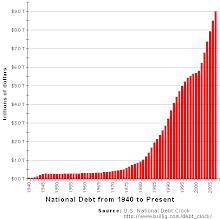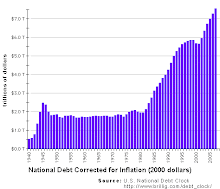WASHINGTON (Reuters) - Federal Reserve Chairman Ben Bernanke, making a case for a second term on Thursday, offered a forceful defence of the U.S. central bank's crisis-battling efforts, which he said prevented an even greater calamity.
"As serious as the effects of the crisis have been ... the outcome could have been markedly worse without the strong actions" taken by the Fed and other authorities around the globe, Bernanke told the Senate Banking Committee.
President Barack Obama nominated the former Princeton University economics professor to another four-year stint as Fed chairman in August, praising his handling of the worst financial crisis since the 1930s. His current term expires on January 31.
Under Bernanke's tenure, the Fed has slashed interest rates close to zero and pumped more than a trillion dollars into the financial system to beat back the worst financial crisis since the Great Depression.
However, the soft-spoken Fed chairman, who was first named to the post by President George W. Bush, was likely to face aggressive questioning at the hearing.
Lawmakers are upset over taxpayer bailouts of financial firms such as American International Group and Bear Stearns, and what they see as lax Fed regulation of banks and lenders that laid the groundwork for the credit crisis.
Senator Bernie Sanders, an independent from Vermont who is not a member of the panel, said on Wednesday he was placing a "hold" on the nomination, arguing the Fed chief had done little for average Americans, while going too easy on big banks.
That move could force Senate leaders to round up 60 votes just to consider the nomination, which could slow the confirmation process and give critics an opportunity to press their case.
The Wall Street Journal, in an editorial on Thursday, also said Bernanke does not deserve a second term.
The paper praised him for his response to the financial crisis but took him to task for perceived missteps in the past, such as his support when he was a Fed governor for keeping interest rates low for prolonged period earlier in the decade, which many critics contend fuelled the housing bubble.
The newspaper's editors also questioned whether he will be willing to make unpopular decisions. "The hard part, the time when central bankers earn their fame, is when they have to take the money away," they wrote.
Despite voices of discontent, the nomination appears likely to overcome any hurdles.
Committee Chairman Christopher Dodd opened the hearing by making clear he would support the nomination, saying the reappointment would send "right signal" to financial markets.
However, the committee's top Republican, Senator Richard Shelby, criticized the Fed's pre-crisis policies.
Earlier on Thursday, Treasury Secretary Timothy Geithner rose to Bernanke's defence. "He did things that had never been done in the past with enormous creativity and bravery, frankly," he told CNBC.
"The president has full confidence in him and we are confident he will be confirmed," he said.
Dodd's panel needs to approve the nomination to send it before the full Senate. If the Senate does not confirm him by January 31, Bernanke could continue to serve until replaced.
Even if confirmed, as widely expected, Bernanke faces the prospect of running a diminished institution if congressional proposals to curtail the Fed's powers and political independence become law.
Dodd has proposed stripping the Fed of its regulatory powers in favour of unifying fragmented U.S. bank oversight under a single roof. He also would require presidential appointment and Senate confirmation of regional Federal Reserve bank board chairmen, taking away a prerogative currently enjoyed by the 12 regional Fed banks.
More worrying for the Fed, legislation the House of Representatives could vote on next week would submit the central bank's monetary policy decision-making to review by a congressional watchdog agency. Sanders has backed a matching measure in the Senate, but Dodd voiced support for the Fed's independence at the hearing.
Bernanke told the panel that most signs point to stabilizing financial markets and an economy tiptoeing out of recession. He said the Fed would carefully calibrate its withdrawal of ultra-low interest rates and the cash flood it has pumped in the financial system, he said.
"We are ... keenly aware that, to ensure longer-term economic stability, we must be prepared to withdraw the extraordinary policy support in a smooth and timely way as markets and the economy recovery," he said. "Determining the appropriate time and pace for the withdrawal of stimulus will require careful analysis and judgement."
Thursday, December 3, 2009
Bernanke defends record during crisis
In the December 3, 2009 Reuters article "Bernanke defends record during crisis," Mark Felsenthal and Pedro da Costa report:
Subscribe to:
Post Comments (Atom)






A deploable record of performance by the fed.
ReplyDelete